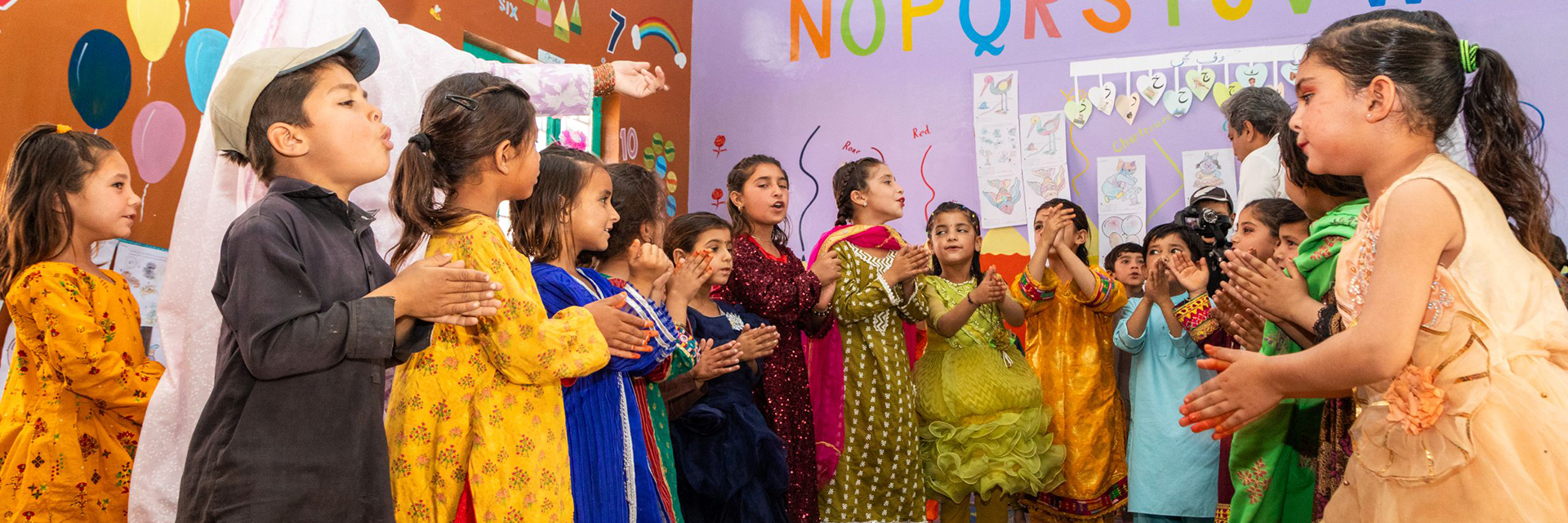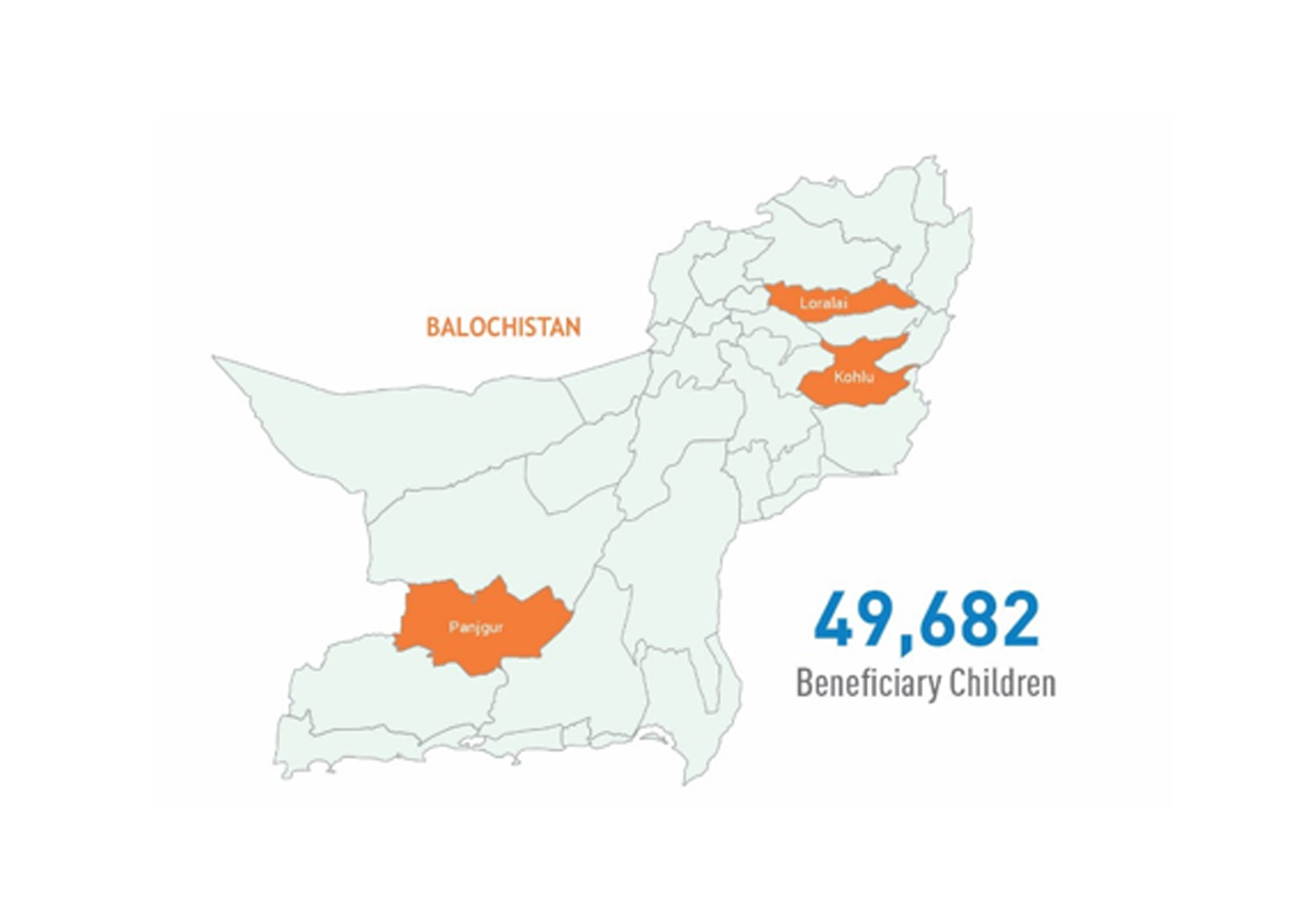

Improving Access to inclusive and equitable quality education for refugees, crisis affected and out-of-school, marginalized and vulnerable girl and boy children and adolescents by providing “whole-of-child” solutions.
Education Cannot Wait (ECW) is the United Nations global fund for education in emergencies and protracted crises. The fund’s Multi-Year Resilience Programme (MYRP) is being implemented in partnership between the Government of Pakistan and a consortium led by UNICEF, Voluntary Service Overseas and the Rural Support Programmes Network in Balochistan and Khyber-Pakhtunkhwa. RSPN is managing MYRP in Loralai, Panjgur and Kohlu districts of Balochistan, through our implementing partner (IP) Balochistan Rural Support Programme (BRSP) for improving access to quality education.
Grantee: Rural Support Programmes Network (RSPN)
Implementing Partner: Balochistan Rural Support Programme (BRSP)
Donor: Education Cannot Wait (ECW)
Districts: Kohlu, Loralai and Panjgur
Province: Balochistan
Duration: Feb. 2022-Dec. 2025
Managed by RSPN, Pakistan’s largest rural development network, Multi-Year Resilience Programme (MYRP) teams reached 49,682 out-of-school (OOS) children and adolescents through formal and non-formal education in programme’s select government schools in Kohlu, Loralai and Panjgur districts. We are improving teaching-learning conditions through school improvement projects, student focused activities and educational reforms. MYRP is ensuring safe and protective interventions, nurturing mental and physical well-being, building capacity of teachers and education authorities, raising awareness, improving access to education by ensuring safe, protective, friendly and healthy schooling, addressing barriers being faced by girls and boys, including Afghan refugee children, adolescents and those living with disability, and developing resilience of education system.

MYRP will reach 42,420 children and adolescents through formal (57%) and non-formal (43%) education.
